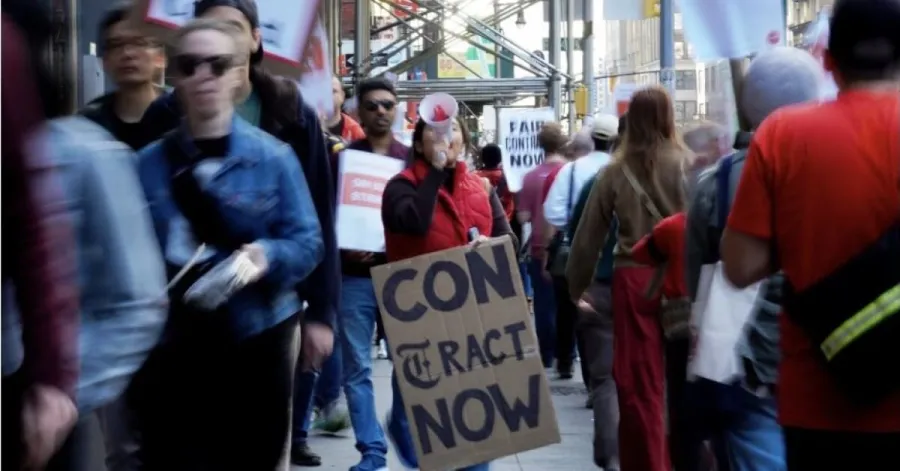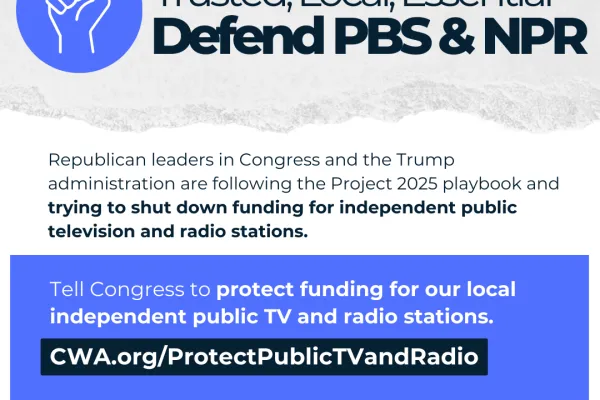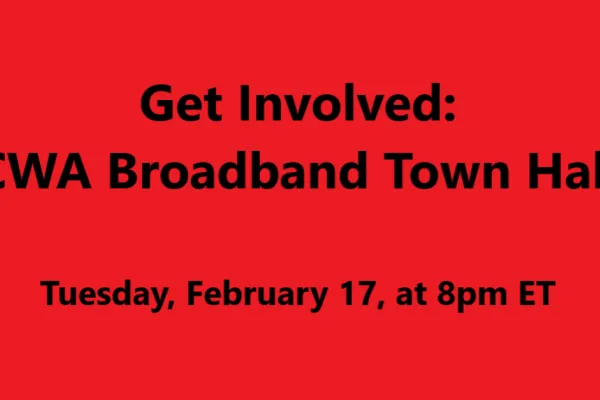New York Times Tech Guild Goes Out on ULP Strike


Times Tech Guild members who power the technology behind mobile push alerts and app and website maintenance at the New York Times walked off the job earlier this week in an ongoing unfair labor practice strike. The strike is the first NewsGuild-CWA work stoppage to coincide with a presidential election day in 60 years and the largest strike of tech workers in modern U.S. history.
Despite being notified of a potential Tech Guild ULP strike months in advance, Times management has failed to meaningfully address tech workers’ key concerns, including remote/hybrid work protections, “just cause” job protections, limits on subcontracting, and pay equity/fair pay. Times management has engaged in numerous labor law violations throughout bargaining, including implementing return-to-office mandates without bargaining and attempting to intimidate members through interrogations about their strike intentions, for which the NewsGuild of New York (TNG-CWA Local 31003) has filed unfair labor practices.
“Our union members and bargaining committee have done everything possible to avoid this ULP strike,” said Kathy Zhang, a Senior Analytics Manager at The New York Times and unit chair of the Tech Guild. “They have left us no choice but to demonstrate the power of our labor on the picket line. Nevertheless, we stand ready to bargain and get this contract across the finish line.”
Tech Guild workers are asking readers to honor the digital picket line and not play popular NYT games such as Wordle and Connections, as well as not use the NYT cooking app. You can play strike-friendly versions of Connections, Wordle, and other games here, as well as check out some recipes. Supporters can donate to their strike fund here.
---
This post originally appeared on cwa-union.org.

